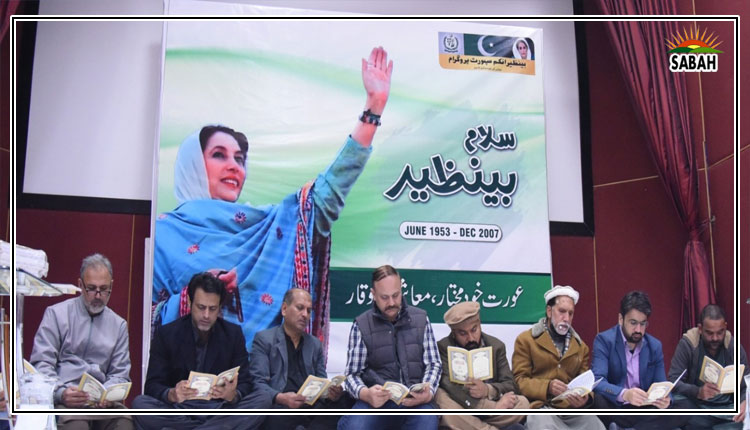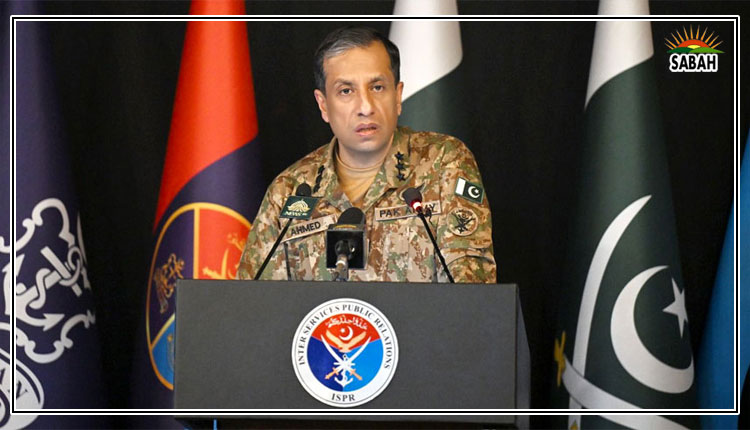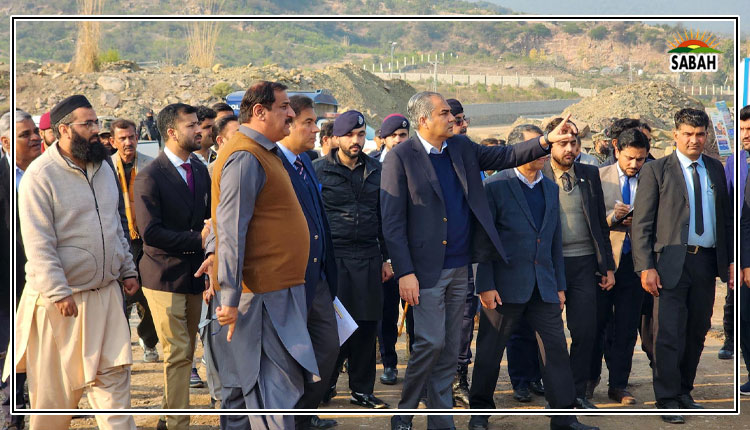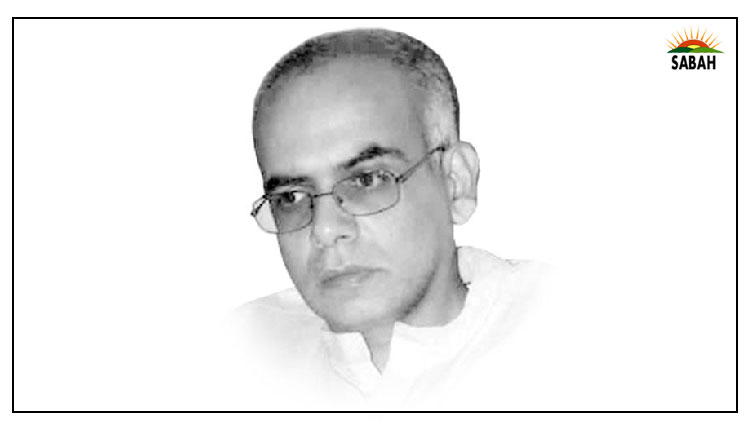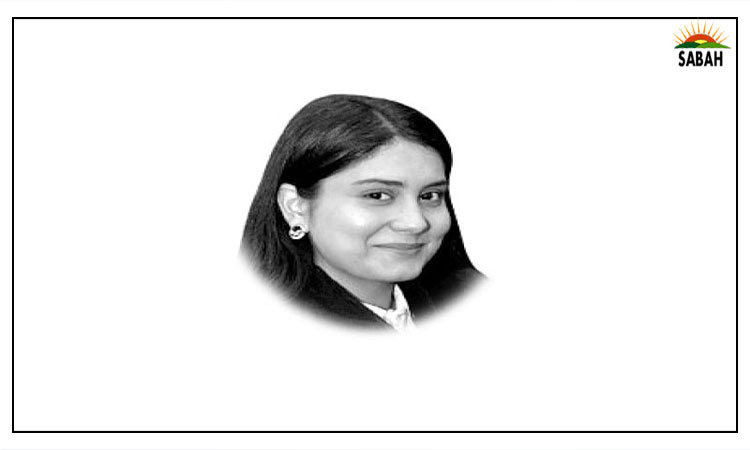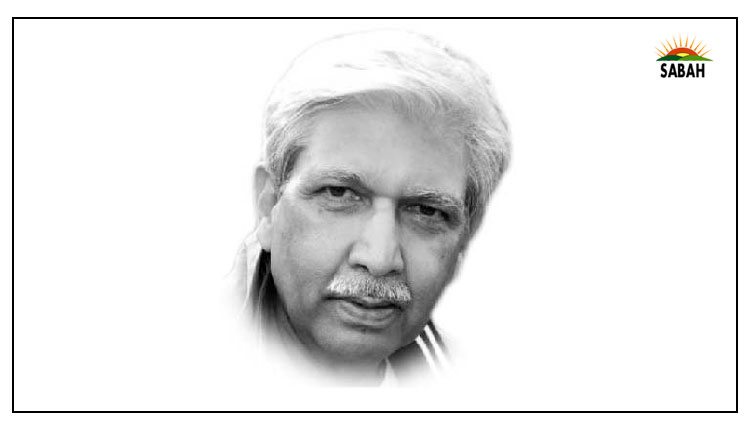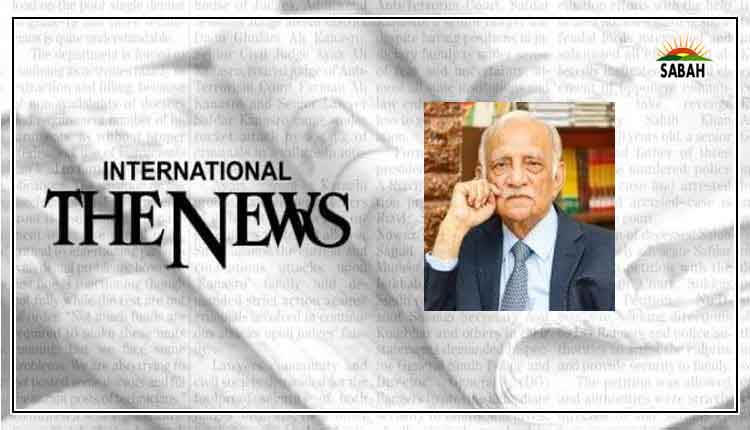Rethinking tax policy vital for all-sector growth amid the rising cost of doing business: Experts
ISLAMABAD, May 16 (SABAH): Experts at a consultative dialogue on taxation policies in the country’s steel sector on Thursday said there is need of complete change in approach towards taxation policies at this point in time when the country’s industry is facing deep crisis due to factors beyond industry’s control – a situation forced on industry.
The Sustainable Development Policy Institute (SDPI) as part of its Pre-Budget Series held the Public Private Dialogue on Taxation Policies in Pakistan’s Steel Sector with the collaboration of the Pakistan Association of Large Steel Producers (PALSP).
The key roundtable objectivs was to discuss the impact of turnover tax levied by the Federal Board of Revenue (FBR) on the steel sector in Pakistan, explore strategies for rationalizing turnover tax over time and extending the adjustment period for the steel industry, advocate for fair taxation policies that address the challenges faced by the steel sector. Already, the local steel industry is struggling to survive at a time when there is large scale smuggling of steel from Iran, sky high energy as well as overall costof doing business and exchange rate volatility.
DrVaqar Ahmed, Joint Executive Director, SDPI said the Institute has initiated two pre-budget discussions, whereas steel is the seventh sector engaged in the consultative process. He said the rethinking of tax policy is imperative not for only steel but other sectors that contribute to economic growth, adding that rising cost of doing business is pushing many industries out of business. The sector stakeholders participated in the session based on their own research with concrete proposals for guiding the policy makers, he added.
On this occasion Syed WajidBukhari, Secretary General, PALSP said steel is a high volume and low margin business and the high levy of turnover tax by the Govt on the steel sector is highly discriminatory and the wisdom behind that tax needed to be probed for better understanding the intentions of the regulators. Melting industry is back-bone of the local steel industry and most of the leading players are diversifying into exports of non-ferrous products like Copper and Aluminum. This vital sector must be dealt with proper strategies and policy tools to keep it energized which will help this sector to boost the much needed exports further,” he said.
He claimed that the turnover tax is an ad-hoc measure and according to tax experts IMF is against it. He stressed there is no justification to limit the adjustment period to three years and it must be increased at least to ten years. ‘In the federal budget for FY 2023-24 last year, the Govt announced reduction of turn over from 1.25% to 1 % in the finance bill. However, it was not made part of the act on the pretext of IMF conditionalities, which is totally false.
The SDPI in collaboration with PALSP focused on revisiting and investigating tax regime adding to the woes of Pakistan’s stretegic steel sector. The SDPI presentation indicated that the steel industry provides crucial inputs for industrial economic growth and development, as it fuels 45 downstream sectors relating to construction industry, transportation, machinery, metal products, energy and electrical equipment, and domestic appliances.
During the panel discussion, representatives of the steel sector and policy analysts indicated that the steel sector is facing multifaceted challenges particularly massive tax evasion in sale & purchase of local scrap, significant tax evasion within a subset of the undocumented steel sector, large scale mis-use of tax exemptions given to the erstwhile FATA and PATA or Newly Merged Districts over the past 6 years.
During the panel discussion, Adnan Abdul Ghaffar, Company Secretary, Amreli Steels urged for the rationalization of turnover tax on steel sector as inflation, political instability, depleting purchasing power capacity and imprudent policy bottlenecks have made the environment totally inoperable for the industry.
Dr Muhammad Iqbal, Former Member FBR said the government’s move to levy new taxes would incur negative impact on industry including increased cost of production and would add to the crisis being faced by the local industry.
“There should be legitimate Solutions to the problems of the industry so that our country may benefit as stringent monetary policy and higher interest rates would impact consumption as inflation to rise with increase in interest rate,” he added.
Shaban Khalid from FPCCI said modern economies were based on credit that can help control inflation through increased interest rates whereas in Pakistan, it would be totally counterproductive.
JavaidIqbal from Karachi Steel said the turnover tax was introduced in 1992 in Pakistan to tax those who were evading tax and were undocumented. However, there is no rationale to burden listed companies on the stock exchange and are being audited by world class auditors.
Shehzad Ahmed Malik President ICMAP said some 500,000 metric tons of steel was smuggled from Iran annually and causing almost Rs 40 billion revenue losses to the national exchequer.He said the FBR should facilitate the filers who are facing double taxation due to taxes like 7E and should promote ease of doing business.
“Fixed tax was a good concept where gulf’s industry is flourishing on fixed tax as it can give more revenue whereas in any case local industry needs to be promoted,” he added.
Engineer Abdul Jabbar, Member BoG, SDPI said the tax expenditure is reaching trillions of rupees that demands the FBR and other stakeholders to explore cascaded economic development measures like reduction in taxes to gain medium term economic gains.
Moreover, the large steel industry needs to engage with law enforcement agencies (LEAs) and regulatory bodies having powers under the schedules to ensure rigorous implementation of law, he added.


